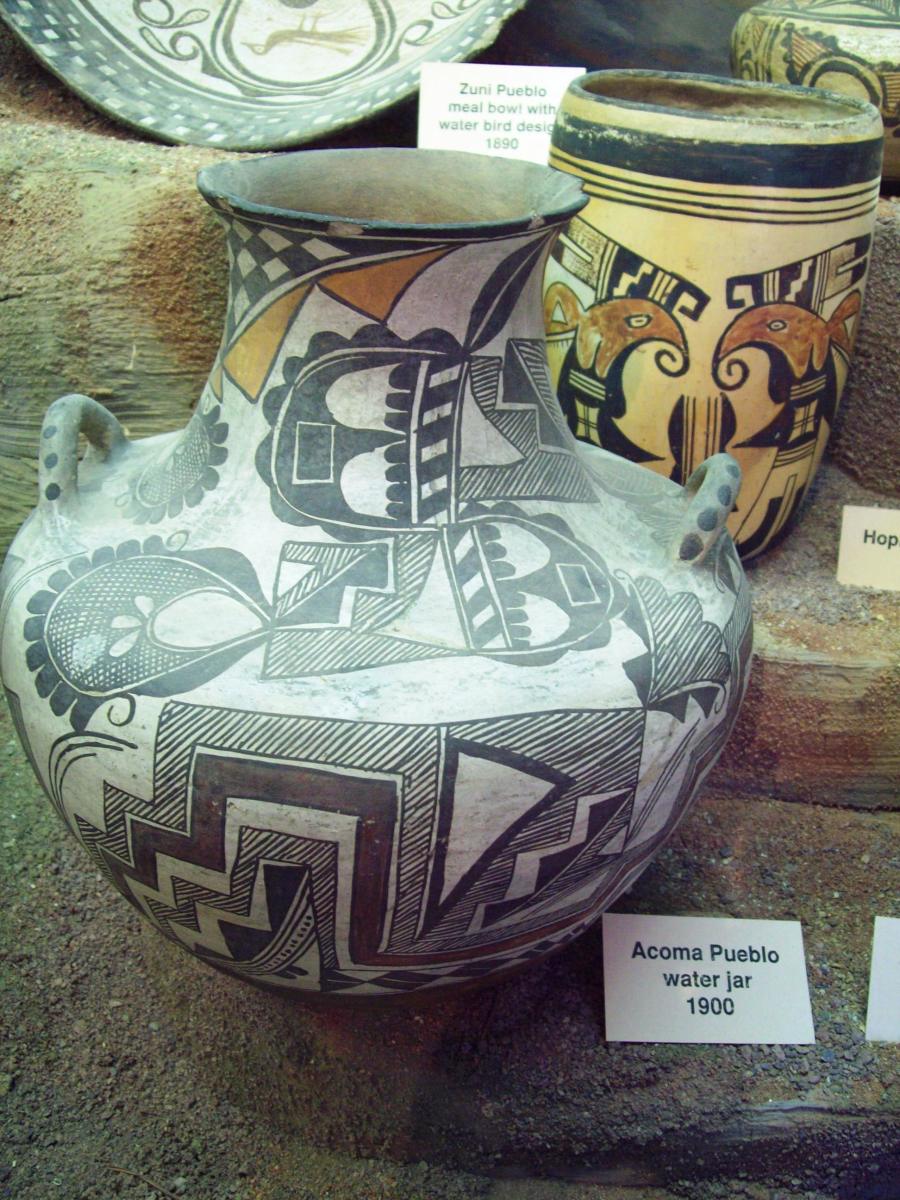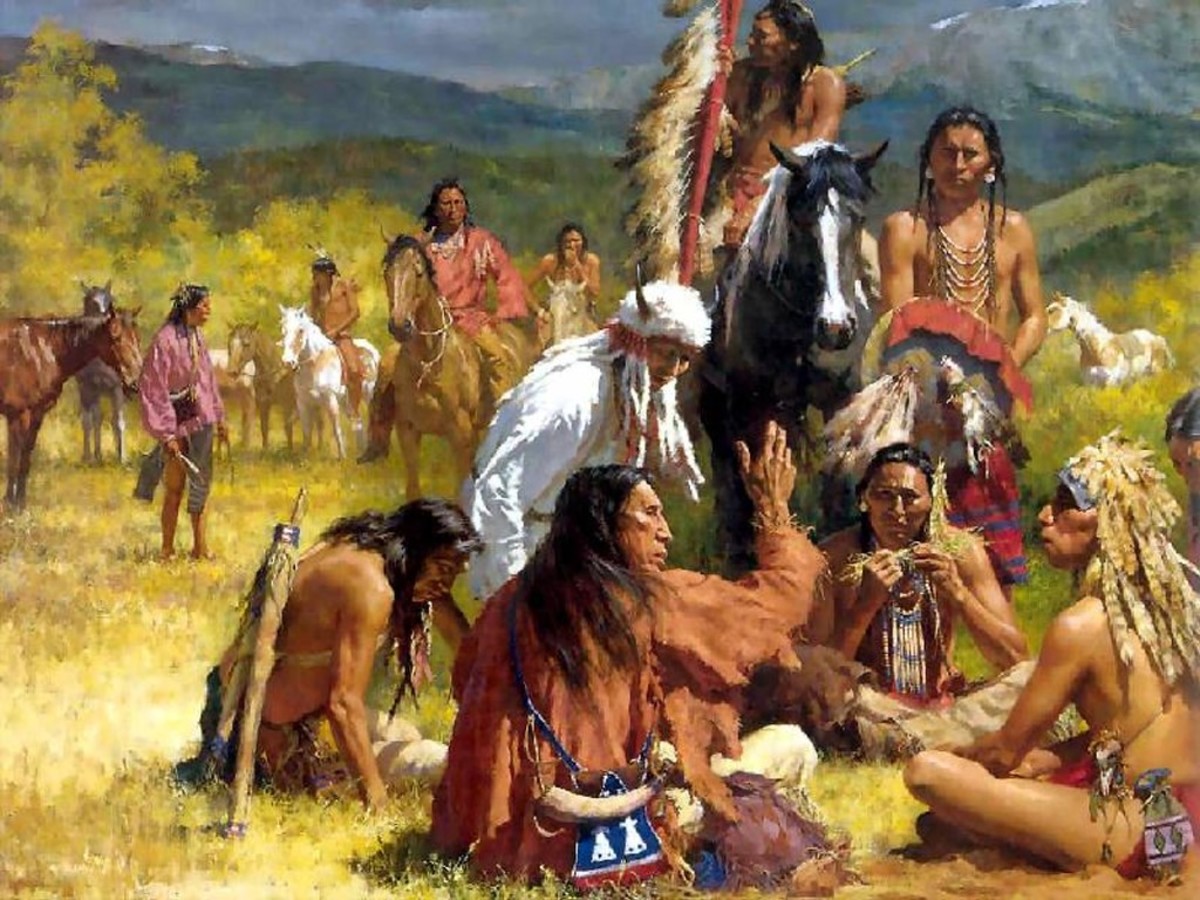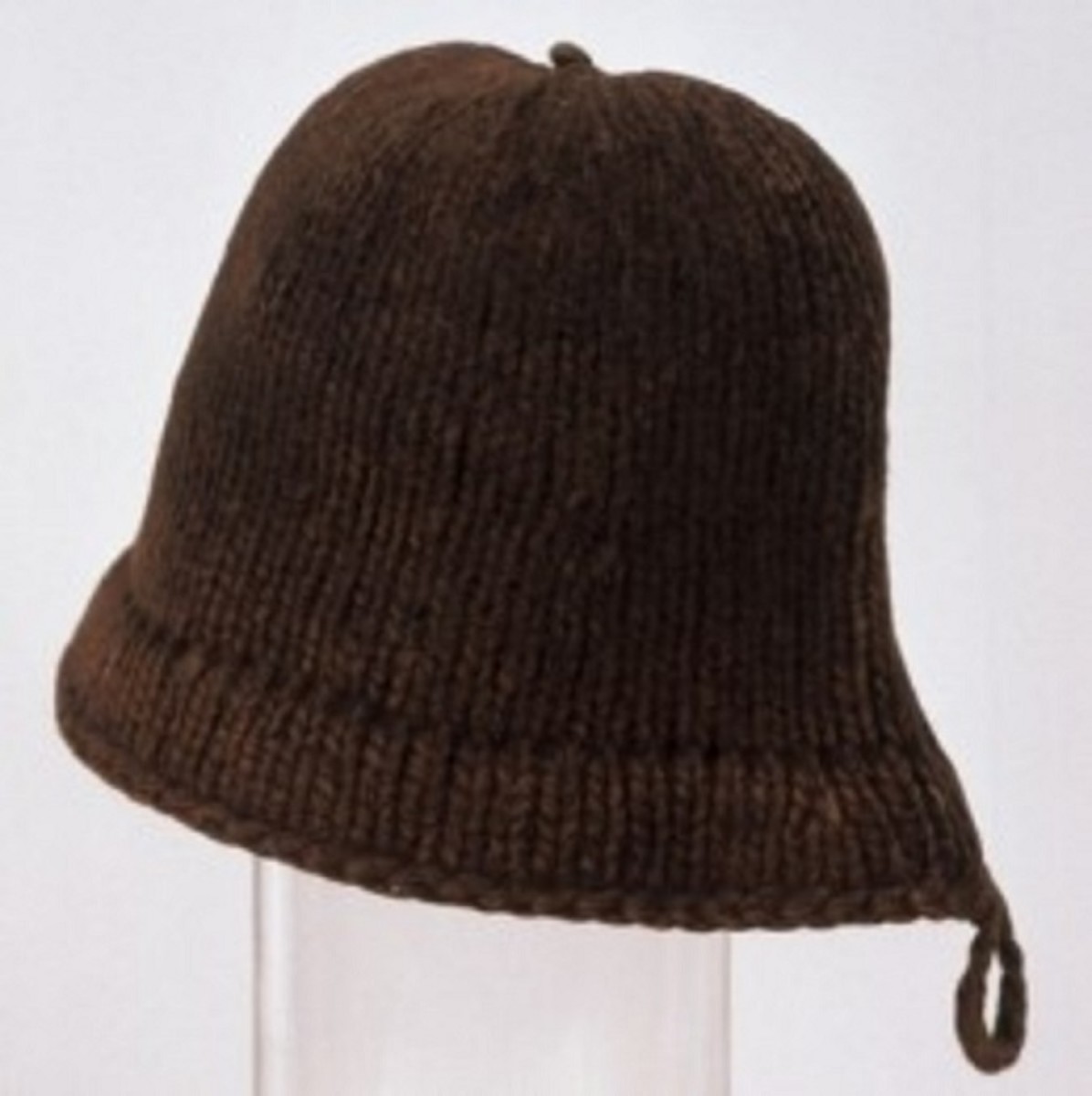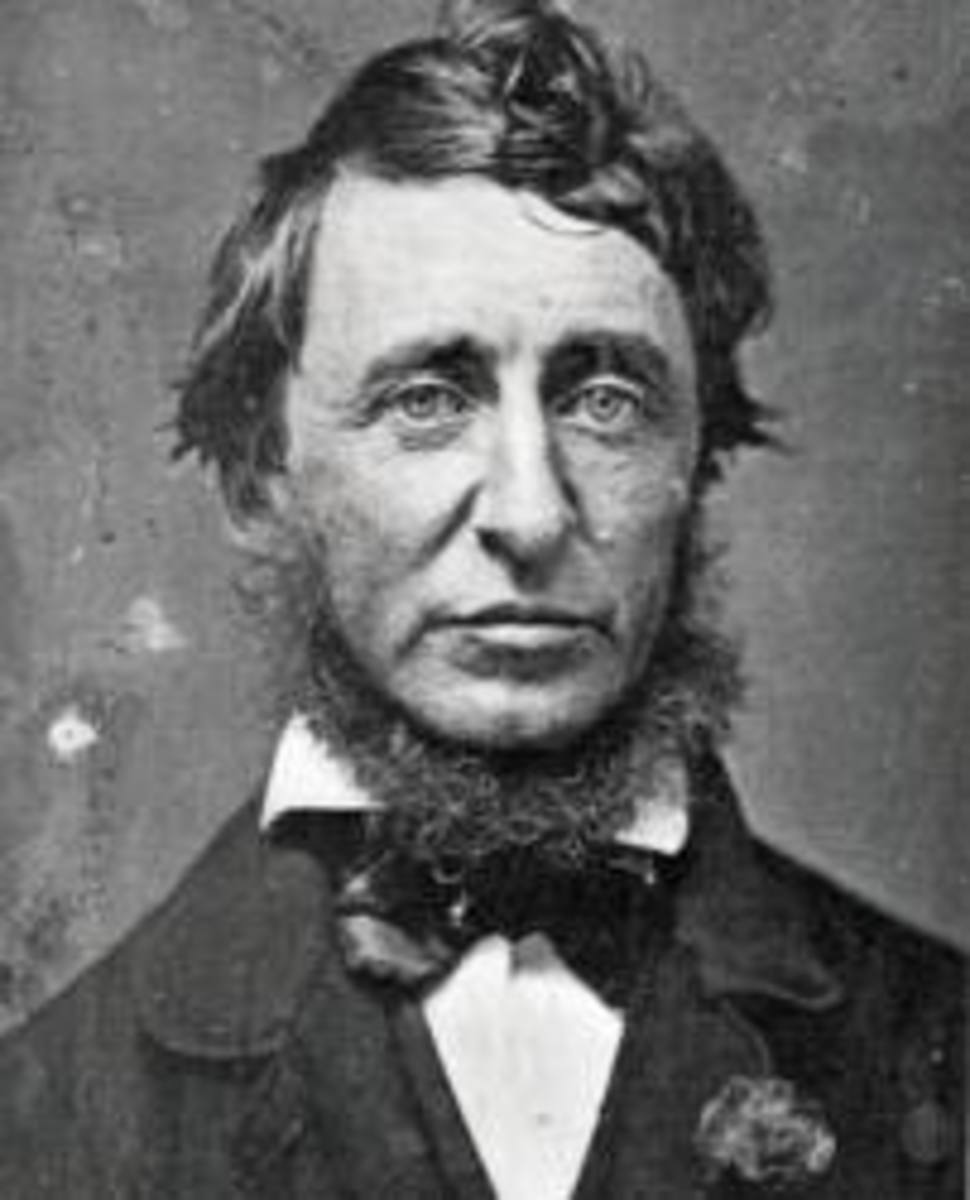The American Cornucopia
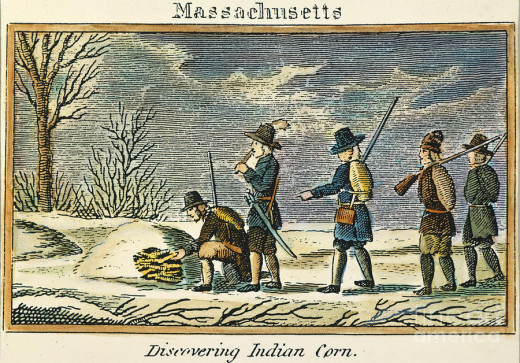
Must Have Been Sent From Heaven
Corn; a blessed substance upholding even the earliest American culture. Upon settling here, our European descendants were skeptical of the wild landscape, unsure of how to tame and conquer it. It is human nature to mold the world to our needs rather than to adapt to the natural order of things. Despite their destructive actions, the Native Americans took pity on the settlers and taught them the trade of agriculture, including of course how to grow the golden crop. Many varieties were being grown at the time by the Native Americans such as "yellow, red, blue, pink, and black kernels, often banded, spotted, or striped" (campsilos.org). An account of early settlement by William Bradford enlightens later generations on these truths of corn's lengthy tradition in American culture. In this excerpt from "Of Plymouth Plantation" Bradford describes the "Indian's" relationship to this unfamiliar crop;
And proceeding further they saw new stubble where corn had been set the same year, also they found where lately a house had been, where some planks and a great kettle was remaining, and heaps of sand newly paddled with their hands, which they, digging up, found in them divers fair Indian baskets filled with corn, and some in ears, fair and good, of divers colors, which seemed to them a very goodly sight (having never seen any such before). (qtd. in Baym, Levine, et al. 77)
Without these lessons on tending the earth, the colonists may not have survived in this unforgiving new world.
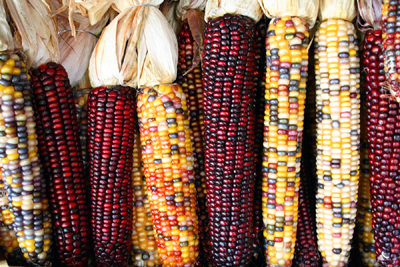

As time passed, the colonists became greedy. Everyone is familiar with the devastating tales of small-pox blankets and bloodthirsty battles. With the near eradication of our once lifesaving comrades, the settlers moved forward in the development of the new world. Agriculture became common practice and before long, corn was was depended upon as one of the most important crops to the settlers (campsilos.org). By the 1800s, scientists were producing hybrid corn, which was stronger and healthier, as well as easy to grow (campsilos.org).

A Great Mind's Respect
Ralph Waldo Emerson, a romanticist who published his works in the mid-1800s, mentions corn is his essay entitled, "Self-Reliance";
There is a time in every man's education when he arrives at the conviction that envy is ignorance; that imitation is suicide; that he must take himself for better, for worse, as his portion; that though the wide universe is full of good, no kernel of nourishing corn can come to him but through his toil bestowed on that plot of ground which is given to him to till. (qtd. in Baym, Levine, et al. 550).
From this passage, it is evident that corn was truly a respected substance and responsible for much of the early colonist's success. Now, however, corn has been exploited to the point of an utterly unrecognizable state. High fructose corn syrup, ethanol, dextrin, maltodextrin, sucralose, xanthan gum, tocopherol, and many more of the confusing ingredients listed on the back of breakfast cereals and soft drinks are all constructed from the same crop; the infamous CORN (Rosen, Sharon 1). The industrialized, "cheap food" system in place in the United States is engineering everything the average American eats. Every processed food contains some percent of corn and this is not only being consumed by people, but by the animals raised to feed the public. It's in the gas at the gas station, rampant at the grocery store, and infiltrating every feed lot from here to Mexico. What was once a substance that provided hope and sustainability is now a detrimental force that has made it's way into every aspect of American life.
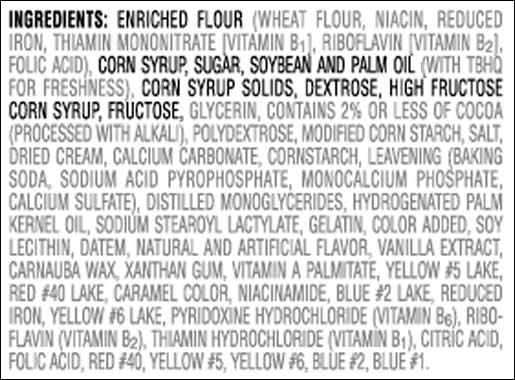
Drawing Conclusions
The production corn has become a corporate force, driven by capitalism. It is amazing how something so pure and new could be twisted and modified to fill the "needs" of a blindly abiding public. Corn once stood for new beginnings and partnerships, and now it is responsible for, not a New World, but a worn out one. Taking from an enlightening TEDTalks about sustainable foie gra in Spain, it is in my opinion, an insult to history.
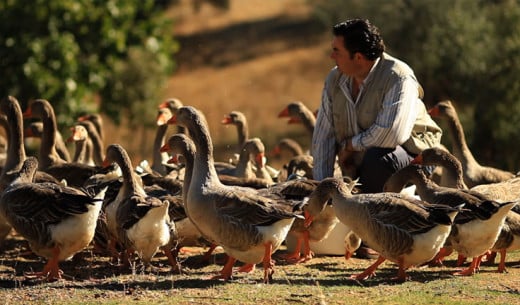
Works Cited
Bradford, William. "Of Plymouth Plantation." Norton Anthology of
American Literature: Shorter Eighth Edition. Baym, Levine, et al. New York:
W.W. Norton & Company, Inc., 2013. 77. Print.
Emerson, Ralph Waldo. "Self- Reliance." Norton Anthology of American Literature: Shorter Eighth Edition. Baym, Levine, et al. New York:
W.W. Norton & Company, Inc., 2013. 550. Print.
Rosen, Sharon. "Ingredients Derived From Corn-What to Avoid." livecornfree.com. 18 Apr. 2010. Web. 19 Feb. 2014.
"The Story of Corn Intro." campsilos.org. Silos and Smokestacks National Heritage Area, 2009. Web. 19 Feb. 2014.

